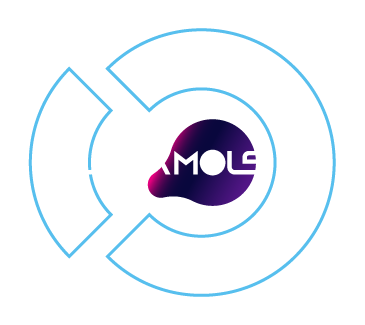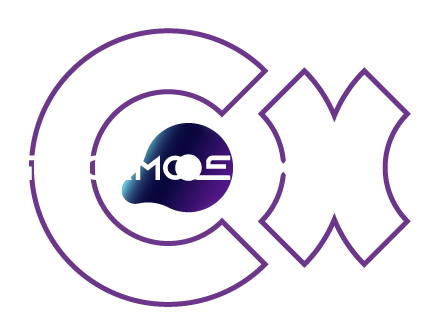What does privacy mean to us nowadays? Collecting large amounts of data, even without people’s consent (a great majority of the population – see chart), is a nightmare of our times. Many institutions, both private and government, collect far too much information about private individuals. It’s so easy for them, not only thanks to the sudden technological innovation that has outpaced regulations, but also thanks to social media’s explosive growth, and our propensity to oversharing. But is it really our fault? Who are data brokers and what do they need our data for? Let’s discover this secret playing-field and its participants.
Who Are Data Brokers?
Data brokering is a multi-billion dollar industry made up of companies that collect consumer data and sell it to other companies. They collect information from public records, online activity, purchase history, and from a variety of other sources: criminal records, property data, warranty card registration information, etc. After collecting it, they resell it to other companies for marketing purposes. The more companies know about consumers, the more targeted and successful they can make their advertisements, so data brokers try to collect as much information as they can. They often organize and analyze it to make inferences about specific consumers. For example, they may categorize a consumer as an expectant parent, a car enthusiast, a discount shopper, or someone more likely to be interested in brand medications than generic. They may even flag a consumer’s Social Security number (“SSN”) as potentially associated with the fraud.
Why Do Data Brokers’ Practices Raise Privacy Concerns?
Data brokers typically collect, maintain, manipulate, and share a wide variety of information about consumers without ever interacting directly with them, so the whole process remains somehow undercover. In case they do offer consumers explanations and choices about how their data is used, that information may be difficult to find and understand. Consumers are often unaware that data brokers are engaging in practices of collecting, manipulating, and sharing information about them, which understandably make us psychologically fragile and evoke the feeling of being manipulated. These circumstances make it even more important for us to know who are data brokers and where they use the data.
Probably the Most Prominent Data Broker in the World
Mark Zuckerberg is the one surely worth listening to when it comes to data sharing (rhymes with selling). He has his compelling perspective on the whole topic: “People have really gotten comfortable not only sharing more information and different kinds but more openly and with more people. That social norm is just something that has evolved over time… But we viewed that as a really important thing, to always keep a beginner’s mind and what would we do if we were starting the company now and we decided that these would be the social norms now and we just went for it. This is a big change from earlier generations. Sure, people have become more comfortable with sharing details about their lives and their relationships online, but they’re also accustomed to having control over what information is shared and how. The balance between technology and society has always been a tricky one, and not just with communications. Cars, airplanes, radio, and TV have all had dramatic, long-lasting impacts on human life, and we’ve come to expect “the next tech wave” and the changes it will enable. But privacy is a very big deal – maybe the biggest of all”
Few Notes on Zuckerberg’s Point of View
Zuckerberg may be right, but the social revolution took place not due to spontaneously evolving social norms, but the standards that have been foisted on a begrudgingly accepting public. And it’s rather Google, with its preeminent Internet search, email, and other services have coerced us all into accepting collecting information about all our online actions. From there, targeted advertising kicked off and it was the beginning of the end of privacy in the digital world. By buying or licensing data or scraping public records, third-party data companies can assemble thousands of attributes each for billions of people. For decades, companies could buy up lists of magazine subscribers to build targeted advertising audiences. These days, if you use a smartphone or a credit card, it’s not difficult for a company to determine if you’ve just gone through a break-up, if you’re pregnant or trying to lose weight, whether you’re an extrovert, what medicine you take, where you’ve been, and even how you swipe and tap on your smartphone.
Point of View of the Industries that Acquire Data from Data Brokers
Every industry wants to collect data (or rather outsource for doing it) and make them profitable for its own business. Insurers, car companies can capitalize on data for mobility, public administration can capitalize on data for smart city applications and utilities, and smart mobility operators offer a car-sharing service. Contextual data, like that provided by a public administration, is also very useful to address the data broker market with the purpose of enriching its capability to interact and develop its apps’ value. In this sort of chain, data (collected via GPS) transforms into information, through aggregation and visualization, then to knowledge. After that, it is possible to extract algorithms and then score.
We Engage Daily in A Variety of Online and Offline Activities That Reveal Personal Information
No matter how mundane it may seem, it’s of interest to someone. Our use of mobile devices, shopping (from a house or car to sanitary napkins), how we act when browsing the Internet or using social media – every online move can find its fascinated observer! It’s not a secret anymore that all of this information gets collected, and in many instances sold to data brokers. The US Federal Trade Commission report: A Call for Transparency and Accountability examines and makes findings and recommendations regarding the practices of data brokers, i.e. companies whose primary business is collecting personal information about consumers from a variety of sources and then organizing, analyzing, and sharing that information, or information derived from it, for purposes such as marketing products, verifying an individual’s identity, or detecting fraud. Who Are the Data Brokers Selling and Buying Your PRIVATE Data ?










